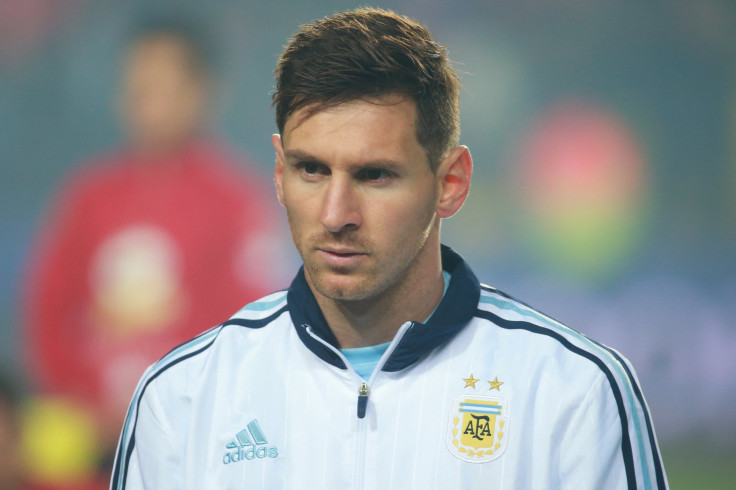Argentina vs. Chile 2015: Lionel Messi To Inspire Albiceleste To Copa America Final Glory?

Lionel Messi may have been voted the player of the tournament at the 2014 World Cup, but it was a competition that only furthered his disappointment in the colors of Argentina. Having won every major club prize available more than once since leaving Argentina for Barcelona at the age of 13, Messi has time and again returned empty handed when turning out for his country. But on Saturday comes his latest chance, possibly his best chance, to put that right.
Argentina will take on hosts Chile in the Copa America final in Santiago fresh from a virtuoso performance, led by the brilliance of Messi, in the semifinals. Paraguay were blown away 6-1 as the Albiceleste finally produced the type of display their glittering array of attacking talent had long threatened.
For much of the Copa America, the theme was a similar one to that at the World Cup -- although they progressed, it was a real struggle. In Brazil, Messi was able to come up with moments of magic to help his country through the early rounds, but he was never at the level he has been able to display when winning Champions League titles with Barcelona. And in the final against Germany, he couldn’t come up with the goods as Argentina suffered an agonizing extra-time defeat.
Not only did it cost Messi the chance of a first ever medal with his country, but it meant Argentina’s trophy-less run dating back to 1993 continued. The galling prospect of a supremely gifted generation of talent, including Messi, Sergio Agüero, Ángel di María, Javier Mascherano and other world stars, finishing their international careers empty handed was becoming increasingly real. Heading into this Copa America, four years on from a dismal failure to land lift the trophy on home soil, the desperation to succeed was palpable, not least from Messi.
“I would give everything [to win the Copa America]” he told La Nacion during the group stage. “This group deserves it for their fighting mentality. We had a great World Cup and we deserve it. I would love it. Not only for my teammates, for the coach and for me, but for the country, too. The fans also want us to win.”
The early rounds, though, provided mixed signs. Under new coach Tata Martino, Argentina won their group, but they had relinquished a 2-0 lead in their opening game with Paraguay and only beaten Uruguay and Jamaica 1-0. In the quarterfinals, Argentina needed a dramatic penalty shootout to prevail against Colombia after failing to find a goal in 90 minutes.
The attack was showing potential, but just failing to come together and deliver the goods for which it was so obviously capable. Meanwhile, Messi, who finished last season with 58 goals for Barcelona, had gone eight competitive games for his country without finding the net from open play. That record was extended to nine after the semifinals, although by that stage nobody seemed to care.
Messi may not have scored, but he did almost everything else, registering three assists and playing his part in the three other goals as he showcased his supreme playmaking abilities.
“I am not too worried that I did not score any goals,” Messi said, according to the official Copa America website. “We played a complete game.”
Martino, who also coached Messi for a year at Barcelona two seasons ago, had a similar message.
“He got three assists, there's no problem,” he said. “He doesn't seem worried to me, he seems happy. He doesn't need to be the team's goalscorer to be happy" That special performance means only the Copa America hosts, looking to end their own drought and win a first ever trophy, now stand in Argentina’s way of glory. And while the swarming attack of La Roja and the masses of home support will provide a sizable obstacle, if Messi and co. can reproduce their semifinal magic, the trophy will surely, finally be theirs.
© Copyright IBTimes 2025. All rights reserved.





















